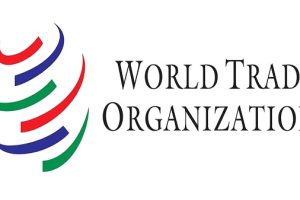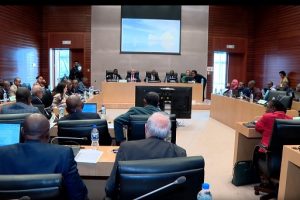BY FITSUM GETACHEW
Ever since the first days of the conflict in the north in November two years ago, there have been huge losses and massive destruction that followed the hostilities. A lot has been said about the material damage of the war and lots of attempts have been made to quantify the losses. There have been speculations about the numbers but it would take some time and real willingness to reach a reasonably accurate number of the casualties that have resulted because of the conflict. However, the psychological damages would be impossible to gauge and find out what consequences would follow in the future life of all those who somehow were involved in the hostilities in any form. People who lived adjacent to where the actual fighting got on were the most exposed to all sorts of traumatic experiences and difficult to come out from.
It will take some time and efforts to find out the exact number of the casualties if at all it is possible. How many have surrendered during the active hostilities and how many have lost their whereabouts and do not know where to go; maybe because they have been seriously affected by the violence in the hostilities is another ask. But above all, how many have been displaced; especially women and children in their desperate attempt to insulate themselves from the hostilities or avoid being taken inside the cycle of violence in the conflict are going to be many. And two years of hostilities is a lot for any family who has to survive using their own means.
Many have run out of food provisions and they had to resort to emergency humanitarian assistance if it was available in time. But the fact is that resources are always scarce and do not always meet the needs of the displaced. There have been problems with logistics even when there was enough aid to reach those direly in need. The northern part of Ethiopia has thus been the theatre of lots of tragic events during the past two years. What is more, the war has also hampered any sort of farming activities and these people in the countryside who were dependent on subsistence farming were forced to abandon their normal activities because the conflict interrupted their usual activities in time for the rainy season’s sowing of seeds. The threats of the expansion of the conflict into various fronts were a factor into the inability of these people to carry out their seasonal activities so that they do not go hungry after a few months when the provisions run out.
One of the major features of the two-year hostilities has been the account of the media covering the conflict. Many western media, in particular, were seen reporting from their own vintage point and as they do have geopolitical interests they highlighted more the part of story that suited their interests while disregarding or downplaying what they thought conflicted with their short term and long-term interests. Moreover, the ‘experts’ they featured on their news coverage for an analysis of the conflict underlined even more their own interests and in so doing were observed glaringly denying certain facts and this happened despite Ethiopia’s willingness to avail accurate information to the international community on the situation. Their partisanship was hence obvious and this was another challenge for the government and people of Ethiopia.
Given the importance of the Horn of Africa in world geopolitics, it would be naïve to believe that no involvement of certain powers would happen. Due to this development, Ethiopia and friends of Ethiopia had to fight a lot, to lobby a lot to make sure that the country would continue to survive as a sovereign, independent and viable nation not susceptible to breaking into pieces as many of its enemies would have desired. They had to foil the threats of all sorts of attacks, its exposure to what was then termed as ‘hybrid attacks’ on multiple fronts. For many, the country was on the brink of disintegration but its resilience has proved indomitable and the country has reached its current stage after seemingly insurmountable obstacles.
Economically, Ethiopia had to withstand continued sanctions and the psychological war to which it was subjected was no less than the actual hostilities with guns and mortars, etc. It needed a lot of resilience and conviction and the assistance of certain friendly countries who stayed by the side of Ethiopia no matter what the developments on the field and no matter the stance of many of the western countries who acted as one block when they adopted measures with regards Ethiopia.
Unfortunately, several kinds of accusations were forwarded against Ethiopia both by the mainstream media as well as by the social media which were definitely financed by those who had vested interests in Ethiopia getting weaker and weaker and would not want to see it as a successfully growing country in the Horn of Africa. Ethiopia’s enemies would not like to see the country become a beacon of democracy and sovereignty, a country that had always been independent throughout its existence inspiring millions of African people and people of African descent across the world such as the Caribbean people and the African-Americans.
But one category of people seems to have been sidelined or at least not given the necessary focus because all those who have been affected by the hostilities, all those who have somehow been involved in the conflict because they heard the guns shouting loud, the soldiers attacking or defending positions and those who actually saw others getting injured or dying have endured the horrible psychological experience. Their mind must have been severely troubled and stressed by what they saw. Even without suffering actual physical violence, they have undergone a terrible drama that is bound to stay in their memory due to the traumatic experience.
In particular, the memory of sexual violence is among the most lasting predicaments of these people. How many have had to watch sexual violence being committed against their loved ones and how many have seen actual violence at the point-blank stage? That is horrible and the trauma will last forever, especially for youths. It is real suffering and it is bound to stay for a long.
Now that all this seems to be gone for good and there is a cessation of hostilities following the Pretoria deal, we need to do a lot to help all those psychologically troubled besides naturally those who actually suffered physical injuries or were displaced from their homes losing all their belongings. It is a daunting task that will need lots of resources and human resources because the victims could run into millions. All those who were involved in the violence were affected even when they may not have sustained any gun wounds or injuries in the violence. And these need psychological counseling because they were terribly stressed having passed uncountable days and nights without real rest or sleep. The level of suffering may be different but it is undeniable that millions need to recover totally from an atmosphere of war to an atmosphere of total peace. This transition is demanding.
First of all, a lot needs to be done to change the language of the media trying to make sure that people’s mind is changed. Now that any kind of hostile propaganda is not admitted based on the Pretoria Peace Deal, we need to actively use a language that fits the current atmosphere of peace, preach forgiveness and friendliness dismiss all previous rhetoric and narratives that were used to arouse the emotions of citizens to join the war efforts wholeheartedly as it is done in any wars. Now that peace has been agreed the language should change completely and avoid using certain expressions that were common in the previous state of mind because they would only inflame emotions and defeat the very purpose of the peace accords. That would be a big setback and it would disappoint all those who worked hard to reach this stage of the agreement.
Instead, we need a long healing process of our minds and mentality so that we realize that the past two years were all wrong and Ethiopians should never be involved in a fight among themselves; they should never expose themselves to the advantage that foreign forces would like to have when we have internal disagreements or disputes. We could have any number of disagreements on several issues but they should be ironed out in a healthy manner with positive and frank discussions around a table but, never resort to armed hostilities.
We now need active peace because only the absence of war does not add up to peace; we need full collaboration among all parties united and defeating our enemy number one which is poverty. We have seen several peace agreements fail particularly in the African context and Ethiopia should not repeat those mistakes. We need to bring down to earth all the terms of the Pretoria peace deal wholeheartedly and sincerely without looking back to what used to take place during the past two years.
The Ethiopian Herald November 30/2022





